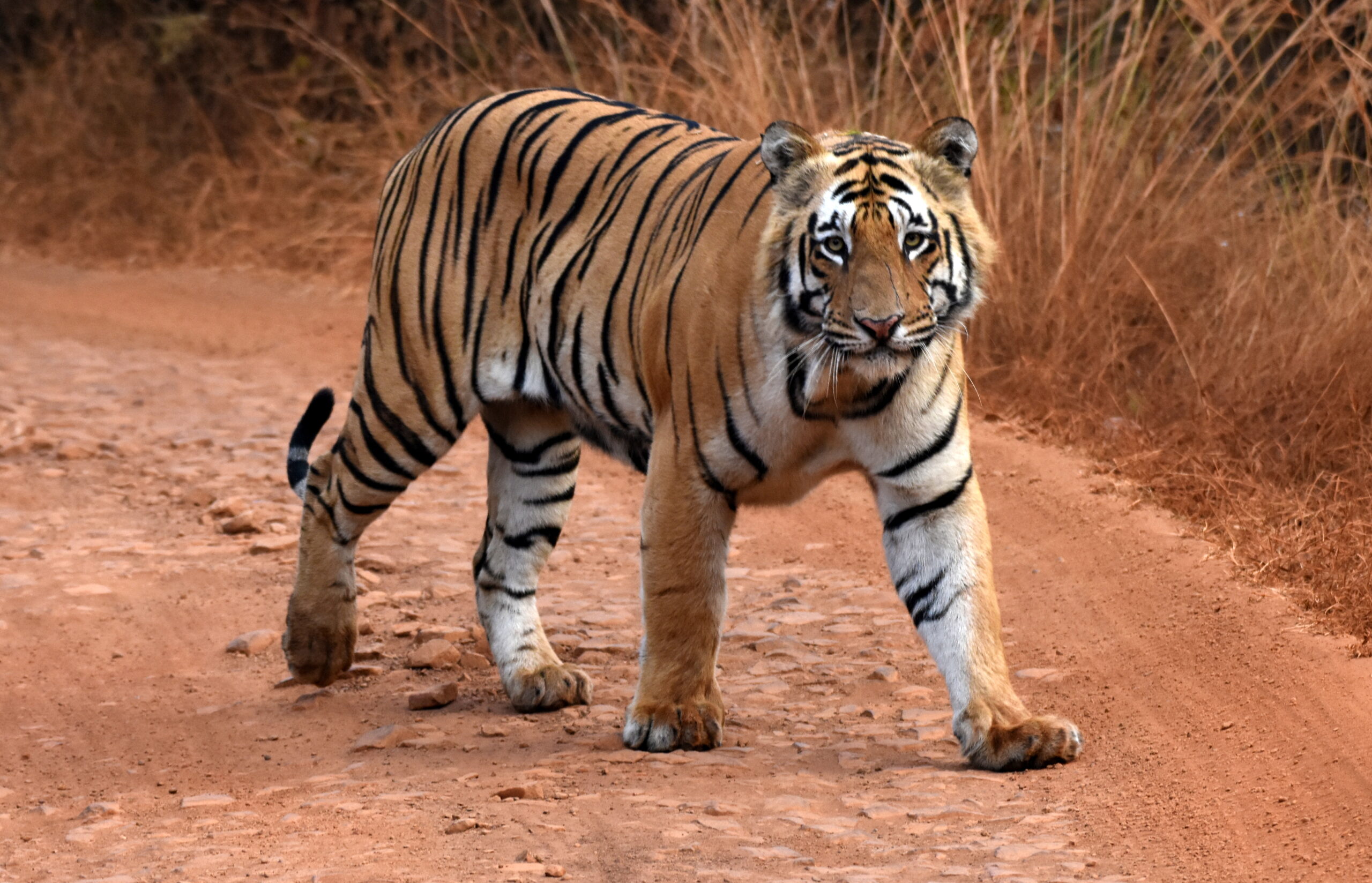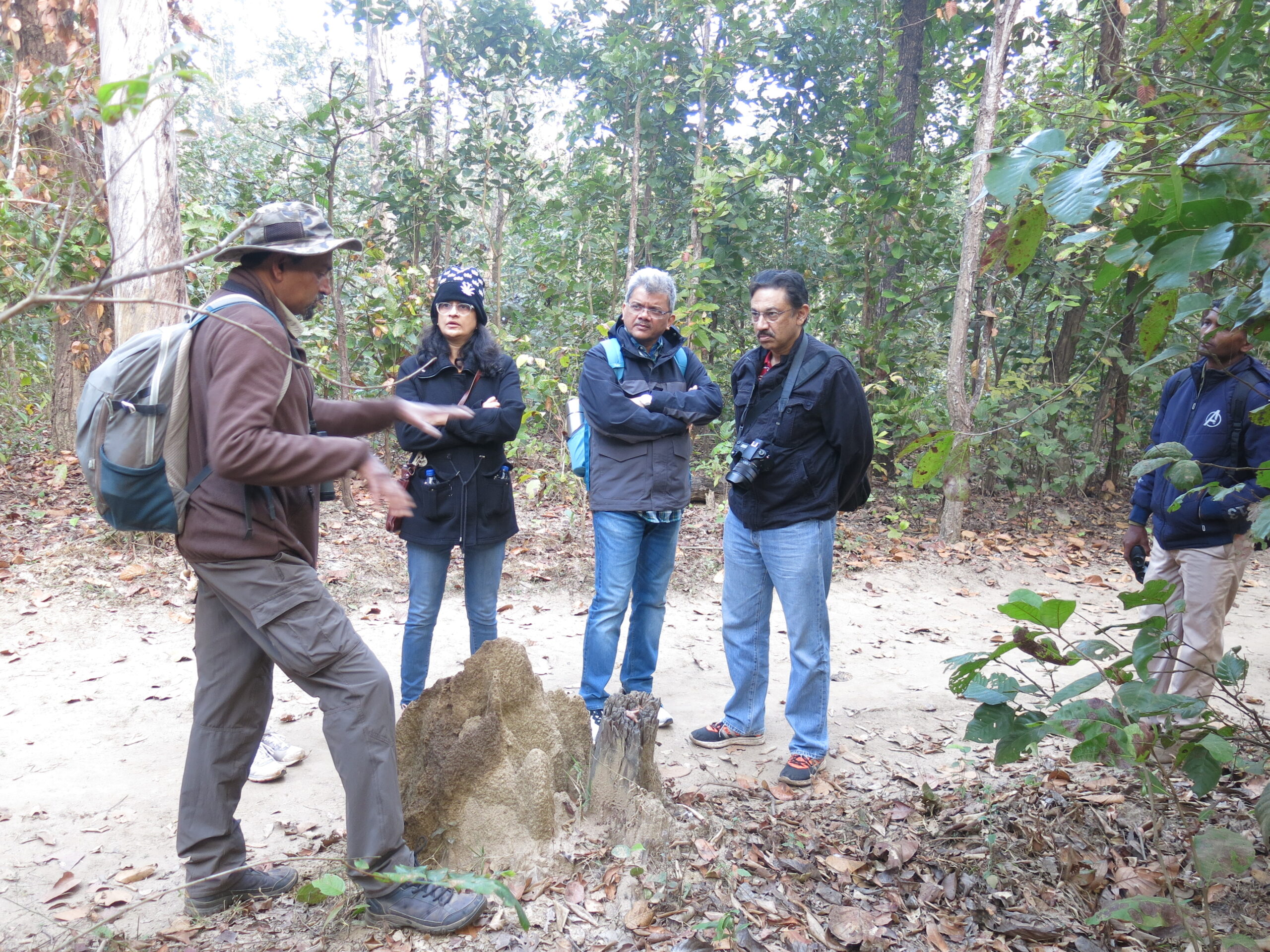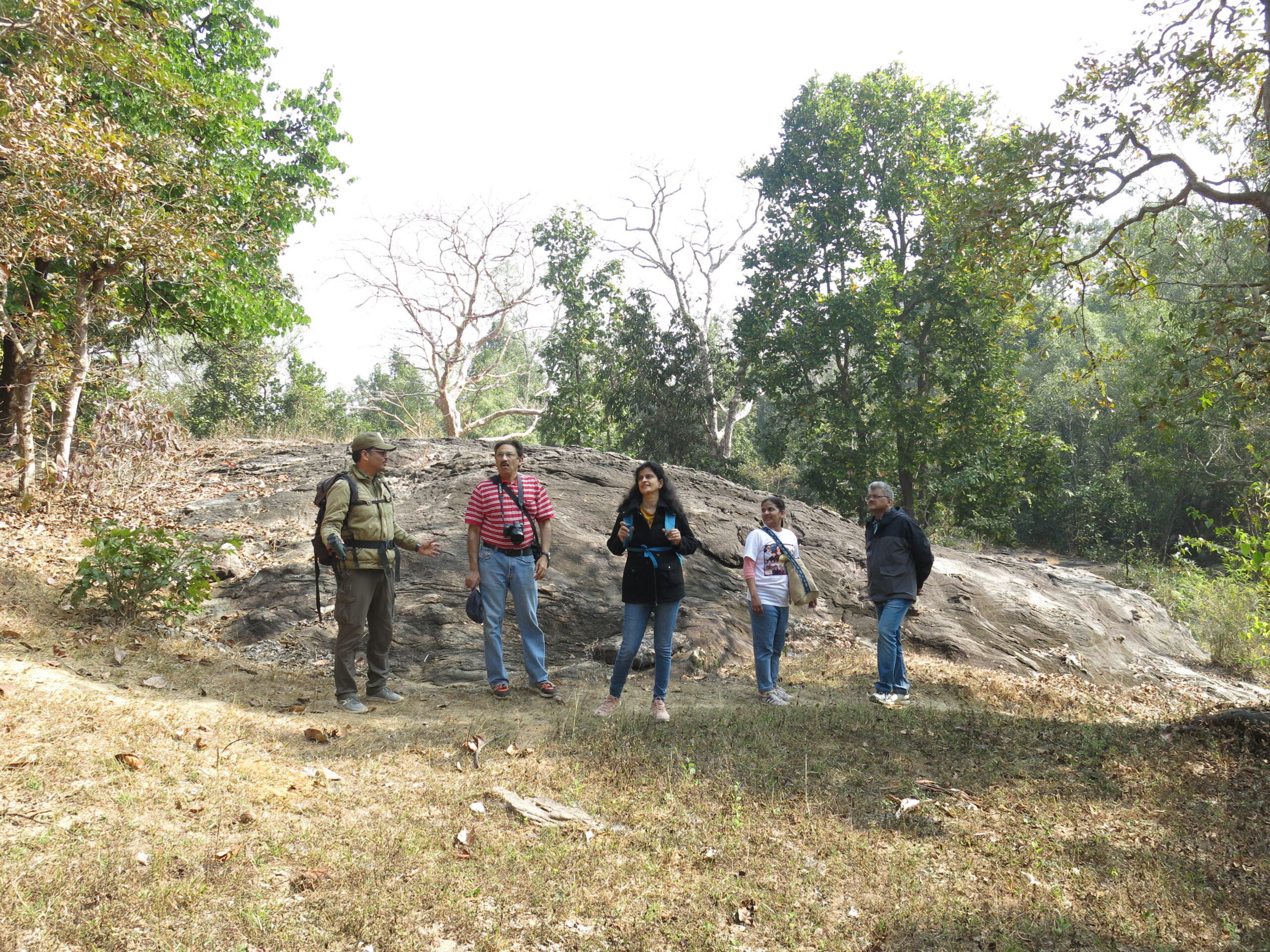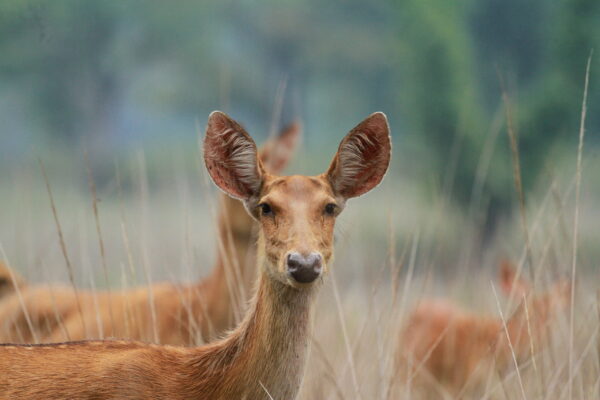In the heart of the central Indian jungles, a profound transformation has unfolded. Project Tiger’s efforts to safeguard apex predators like tigers have not only revitalized these ecosystems but have also paved the way for a new paradigm of conservation – one that is intertwined with sustainable and responsible tourism. Central to this endeavor is the dedicated work undertaken by Jungle Camps India, encompassing Tadoba Jungle Camp, Kanha Jungle Camp, Pench Jungle Camp, and Rukhad Jungle Camp. The collective efforts have been instrumental in weaving together the threads of conservation, livelihood, and responsible tourism.
Majestic Bengal Tigers: Guardians of the Jungle Kingdom
The Bengal Tiger, an epitome of power and elegance, roams the verdant landscapes of India’s jungles with an air of authority. Beyond its striking appearance, this apex predator embodies the intricate web of life, serving as a keystone species that influences the entire ecosystem.
Physical Features:
Cloaked in a fiery coat adorned with dark stripes, the Bengal Tiger’s physical presence commands respect. With a muscular build and powerful limbs, it embodies both grace and strength. Its stealthy movements and piercing gaze belie its role as the ruler of the jungle realm.
Social Structure:
These solitary creatures weave complex social threads. While they typically navigate their territories alone, glimpses of social interactions emerge during mating or encounters at waterholes. Territories are fiercely defended, revealing the intricate dance of boundaries within their world.
Mating Habits:
Mating rituals unfold as a symphony of sensory cues. Male Bengal Tigers mark their domains with scent markings, while females release scents to signal their readiness to mate. The courtship dance is intense, marked by vocalizations and displays of prowess. These rituals underscore the species’ determination to ensure their genetic legacy.

Importance as Keystone Species:
Beyond their regal presence, Bengal Tigers play a critical role as a keystone species. As apex predators, they regulate prey populations, preventing overgrazing and maintaining ecological balance. Their presence ripples through the food chain, influencing plant growth, predator-prey dynamics, and overall biodiversity.
In the heart of India’s wilderness, the Bengal Tiger stands as a living testament to nature’s intricate designs. Its physical prowess, social intricacies, and ecological significance intertwine to shape the very fabric of the jungle kingdom. As we revere these majestic creatures, we acknowledge their pivotal role in sustaining the delicate equilibrium of their habitat.
Jungle Camps India, a pioneering force in ecotourism, has embraced the philosophy that tourism can serve as both a means of livelihood for local communities and a vehicle for environmental stewardship. With a presence in iconic destinations like Tadoba Jungle Camp, Kanha Jungle Camp, Pench Jungle Camp, and Rukhad Jungle Camp, we have embraced the vision of harmonizing human activities with the preservation of these invaluable landscapes.

From the outset, Jungle Camps India recognized that true conservation goes beyond saving individual species – it involves safeguarding entire ecosystems while empowering local communities. the commitment is manifested in various initiatives aimed at nurturing a symbiotic relationship between tourism and nature.
One of our core tenets is responsible tourism, which encompasses minimizing the ecological footprint of visitors while maximizing the benefits for local communities. Tadoba Jungle Camp, Kanha Jungle Camp, Pench Jungle Camp, and Rukhad Jungle Camp all adhere to this principle by meticulously integrating sustainable practices into every facet of the operations – from energy-efficient lodges to waste reduction and water conservation. the lodges serve as exemplars of eco-friendly architecture, harmoniously blending into the surroundings.
Education forms a cornerstone of Jungle Camps India’s approach. Tadoba Jungle Camp, Kanha Jungle Camp, Pench Jungle Camp, and Rukhad Jungle Camp all conduct workshops, nature walks, and talks on wildlife and conservation for both guests and local communities. By fostering an understanding of the intricate web of life, we kindle a spirit of guardianship among guests and empower locals to become stewards of the own heritage.

Furthermore, Jungle Camps India collaborates closely with indigenous communities surrounding Tadoba Jungle Camp, Kanha Jungle Camp, Pench Jungle Camp, and Rukhad Jungle Camp. By offering employment opportunities, supporting local artisans, and engaging in community development projects, we channel part of tourism revenue back to the people who are integral to the conservation effort. This approach not only boosts livelihoods but also nurtures a shared commitment to protecting these fragile ecosystems.
The commitment to wildlife goes beyond the borders of the lodges. Tadoba Jungle Camp, Kanha Jungle Camp, Pench Jungle Camp, and Rukhad Jungle Camp all actively participate in conservation projects, support anti-poaching initiatives, and contribute to research efforts. By involving guests in these endeavors, we bridge the gap between passive observers and active participants in conservation.
With inspiration from Project Tiger, Tadoba Jungle Camp, Kanha Jungle Camp, Pench Jungle Camp, Rukhad Jungle Camp, and Jungle Camps India has birthed a paradigm shift – one where conservation, responsible tourism, and community engagement intertwine seamlessly. The central Indian jungles are no longer just destinations; they are vibrant classrooms where visitors learn the art of coexistence and locals become champions of the own legacy.

As the roar of the tigers echoes through Tadoba Jungle Camp, Kanha Jungle Camp, Pench Jungle Camp, and Rukhad Jungle Camp, it is accompanied by the hum of change. Project Tiger has ignited a movement that embraces the wilderness not as an untouchable realm but as a heritage to be cherished, shared, and conserved. In partnership with Jungle Camps India, this movement has evolved into a symphony of conservation, where the crescendo of progress is a testament to what can be achieved when nature and humanity stand united.

